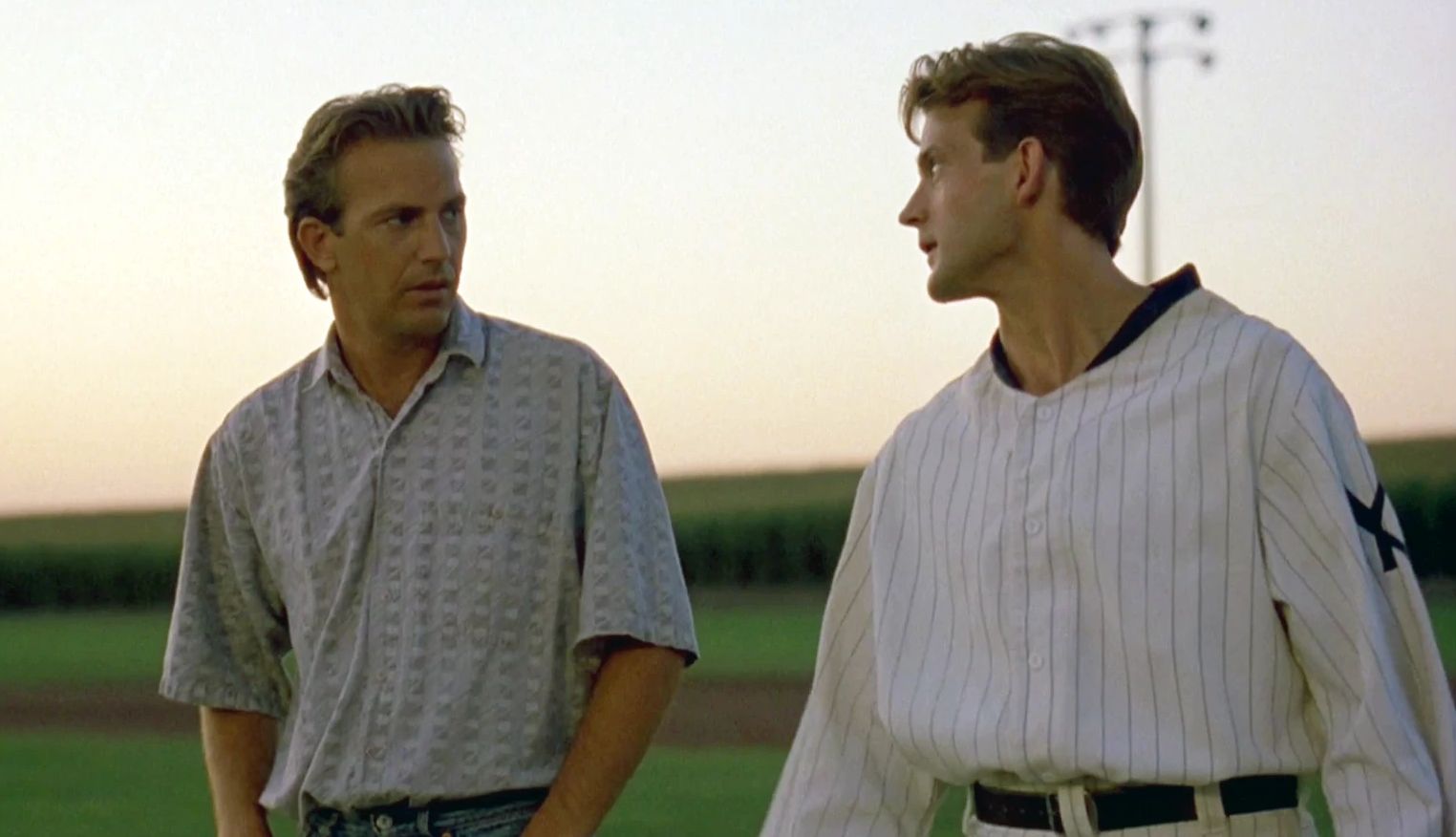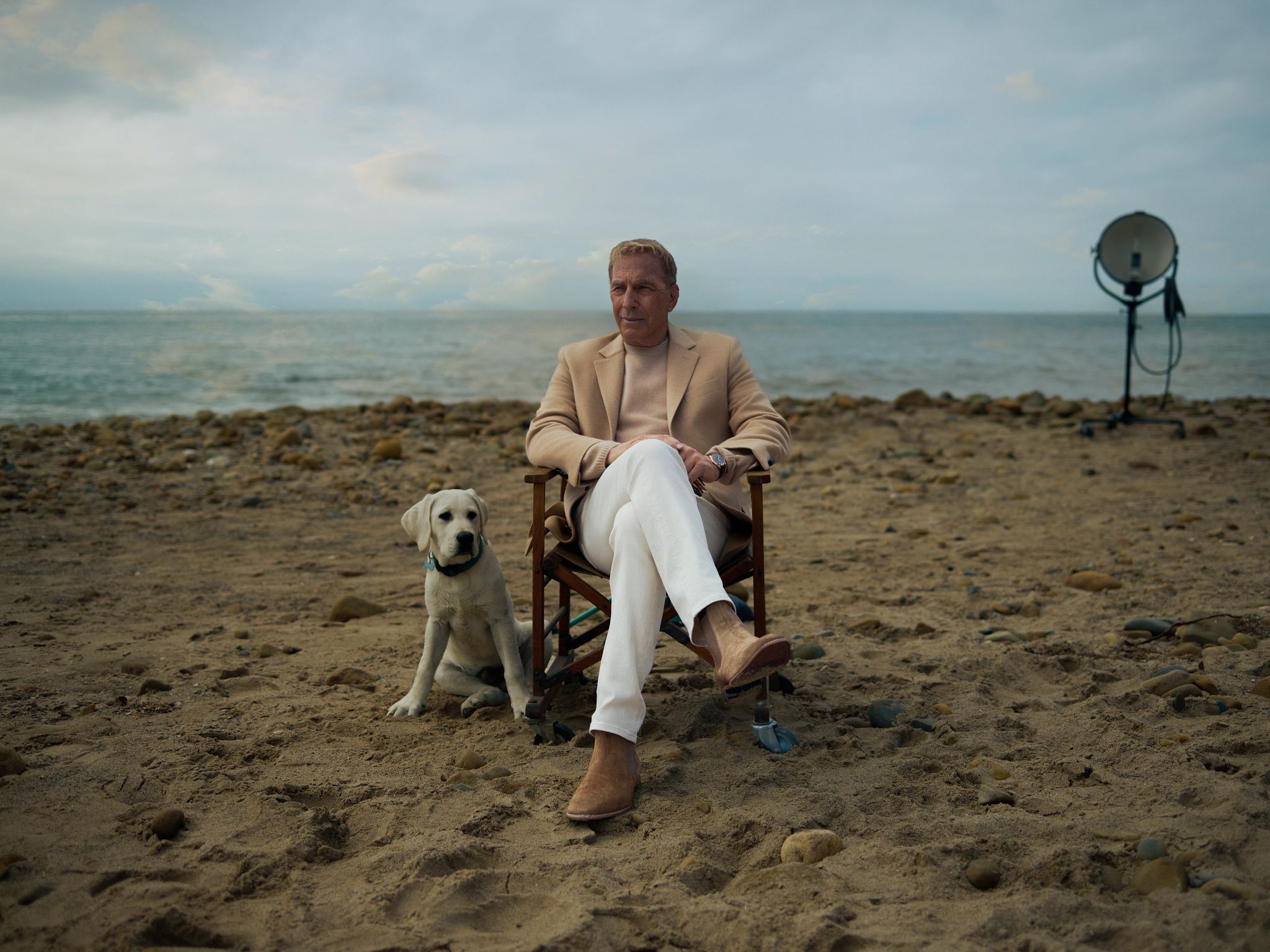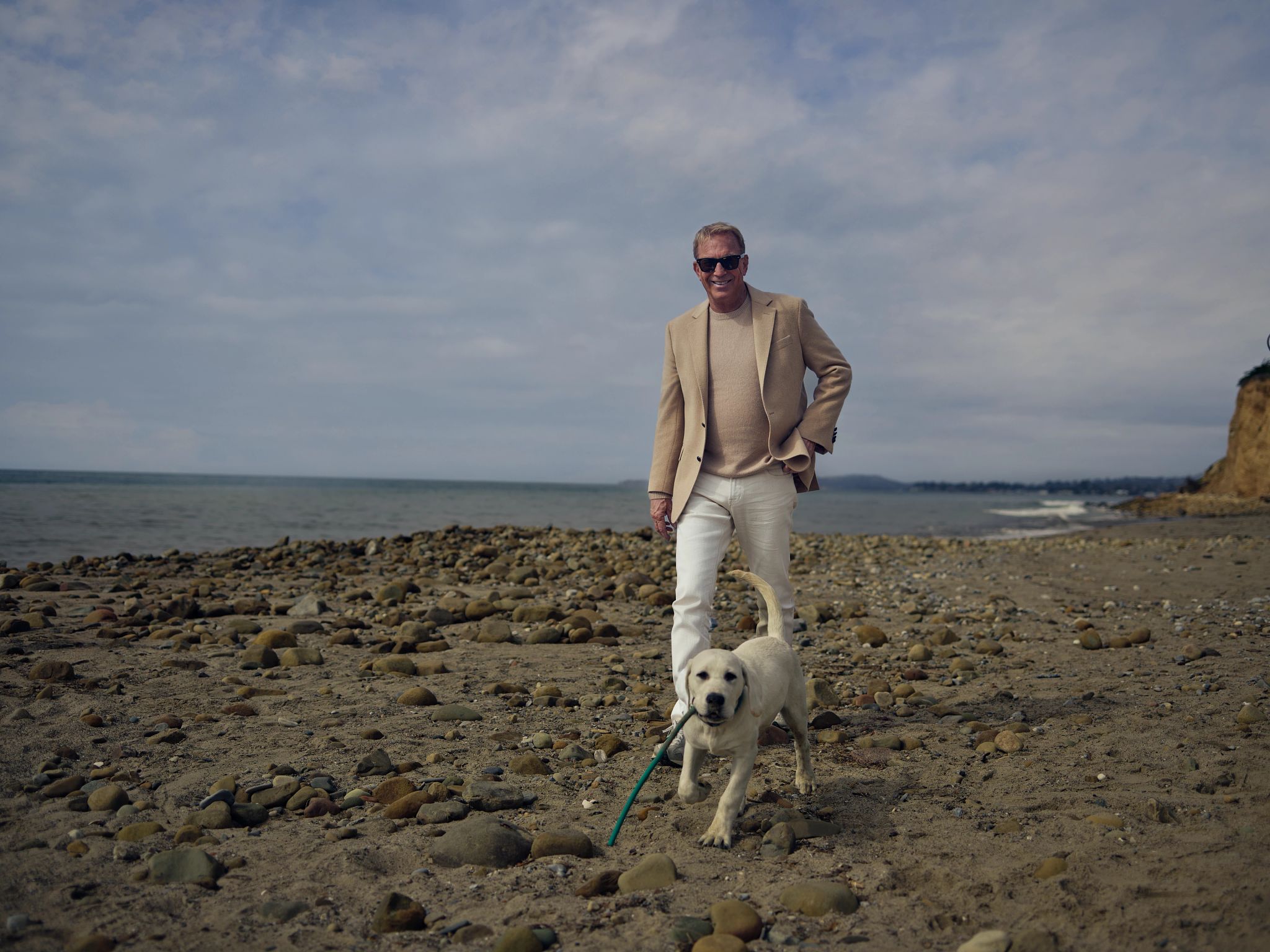AARP Hearing Center
Kevin Costner spent 36 years trying to get his newest movie to its premiere this summer. He commissioned the original story, and he cowrote, directed, produced and will star in all four of the movies that make up another career-defining gamble, Horizon: An American Saga. He has even personally financed a significant portion of the series — to the tune of $38 million so far, plus a substantial deferred salary. “I pushed my chips to the middle and didn’t blink,” he says defiantly.
Just don’t refer to it as a passion project.
“Calling it that actually minimizes it,” he is quick to point out, as we sit in his contemporary, sparsely furnished guesthouse overlooking the Pacific near Santa Barbara, California. “I’ve been passionate about a lot of things that I’ve done. This is a good idea about America. People came west. It’s part of our legacy. I just believed in it so much that I put my money into it, but I’ve had that belief about everything in my life.”
Though Horizon is a mammoth undertaking, Kevin Costner knows what work is. His father was a ditchdigger and later serviced electric lines; his mother was a welfare worker, and Costner grew up in a series of then largely working-class California cities like Ventura and Visalia. After graduating from Cal State Fullerton, he drove a truck, led bus tours of homes of Hollywood stars and worked on fishing boats. “I worked as a deckhand, out of Eureka, Coos Bay and Newport,” he says, gazing at the sea. “We fished salmon and, late in the season, albacore. Sometimes we were out for eight days. The boat was only 28 feet, built in 1929, an old traditional boat, and we worked every day. That’s how I made my money.”
Hard work defined him then — and now. He has starred in more than 50 feature films and produced or directed over 30. He’s launched and invested in such diverse businesses as a casino in South Dakota, an oil-separation technology firm and numerous innovative start-ups. Meanwhile, he founded a country rock band, Kevin Costner & Modern West, which recorded several albums (one of them charted on the Billboard 200) and even toured Europe.
The inspiration to take on acting came during a chance encounter in 1978. While on a flight from his honeymoon in Mexico (with his first wife), a 23-year-old Costner reportedly noticed Richard Burton sitting in first class, surrounded by several vacant seats that Burton had purchased so that the other passengers would leave him alone. Costner waited for Burton to finish his book before he approached the great leading man to ask him about a career in acting.
Burton looked him up and down. “You have green eyes,” Burton pointed out. “And I have green eyes. I think you’ll be fine.” Costner then asked Burton if it was possible to have a life in acting without the turmoil that Burton himself had experienced. “I think it’s possible,” Burton told him. “It hasn’t been for me, but I think it’s possible.”


That’s when the work was jump-started, through acting lessons and countless auditions. There were setbacks in the early ’80s (Costner’s role in The Big Chill was edited out of the final cut by director Lawrence Kasdan; ironically, Kasdan’s brother, Mark, helped cowrite Horizon), followed by some big hits in the mid-to-late ’80s — No Way Out, The Untouchables, Bull Durham and the still wildly popular Field of Dreams.
In 1990 came Dances With Wolves, the first big bet Costner made on himself. From the very start, he was all in on the historical Western; he played the lead role and was coproducer, director and even a financier of the film. It became a family affair when his daughter Annie made an appearance, the first of several young Costners to show up in his films over the years.
At three hours, the movie was thought to be too long for a modern movie audience. But he owned his choices. “I’m a ‘more is better’ type of director,” he said. “If something is good, I don’t want it to end.” Audiences agreed. Dances With Wolves grossed some $424 million worldwide (that’s approximately $1 billion in today’s dollars).
He went on to star in some hits in the ’90s, most notably JFK and The Bodyguard. (Of note: He recently revealed that he had been in talks with Princess Diana to do a sequel before her death in 1997.) And yes, some measure of the turmoil he once feared did follow, as he starred in and produced a couple of notable flops with which he is still famously associated — The Postman (which he also directed) and Waterworld.
There were other troubles from time to time — divorces, lawsuits and disagreements — all widely reported. Today Costner, 69, is fresh off his controversial departure from the TV series Yellowstone, which he left after production delays endangered the shooting schedule of Horizon. (Through the spring, Costner and the Yellowstone producers and showrunners publicly laid blame at each other’s feet for the abrupt ending, and in late June, Paramount announced production would resume without Costner. He then confirmed via Instagram that he was done with Yellowstone “into the future.”)
Now, having recently finalized his second divorce, he stands in the premiere moment of another massive career gamble — his unprecedented Horizon project, a story of the violent settling of the American West in the period before, during and after the Civil War. The first film is in theaters and will soon be streaming on premium VOD and Max. The release date of the second film was unknown at press time; the third is wrapping up production. Early reviews were decidedly mixed, but Costner says he doesn’t read reviews. “Everybody says, ‘Well, it’s just water off a duck’s back,’ ” he says. “But it’s not. They can hurt.”































.jpg?crop=true&anchor=13,195&q=80&color=ffffffff&u=lywnjt&w=2008&h=1154)


































More From AARP
Susan Sarandon and Sheryl Lee Ralph Take on the Role of Bridesmaids
The two star in ‘The Fabulous Four’ along with Bette Midler and Megan MullallyChristie Brinkley Declares, ‘70 Is the New 40’
Longtime supermodel embraces aging — and wants others to do the same
Jon Bon Jovi’s Long Journey Back: ‘Life Has Happened’
How the kid phenom of Jersey rock has handled 40 years of fame — and the potential loss of his most precious instrument: his voice
Recommended for You